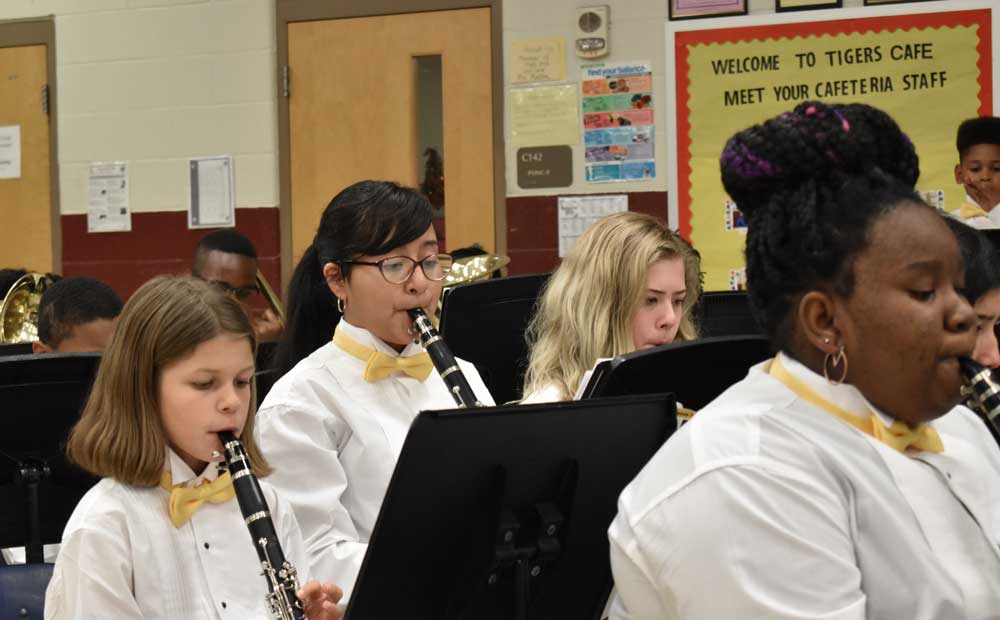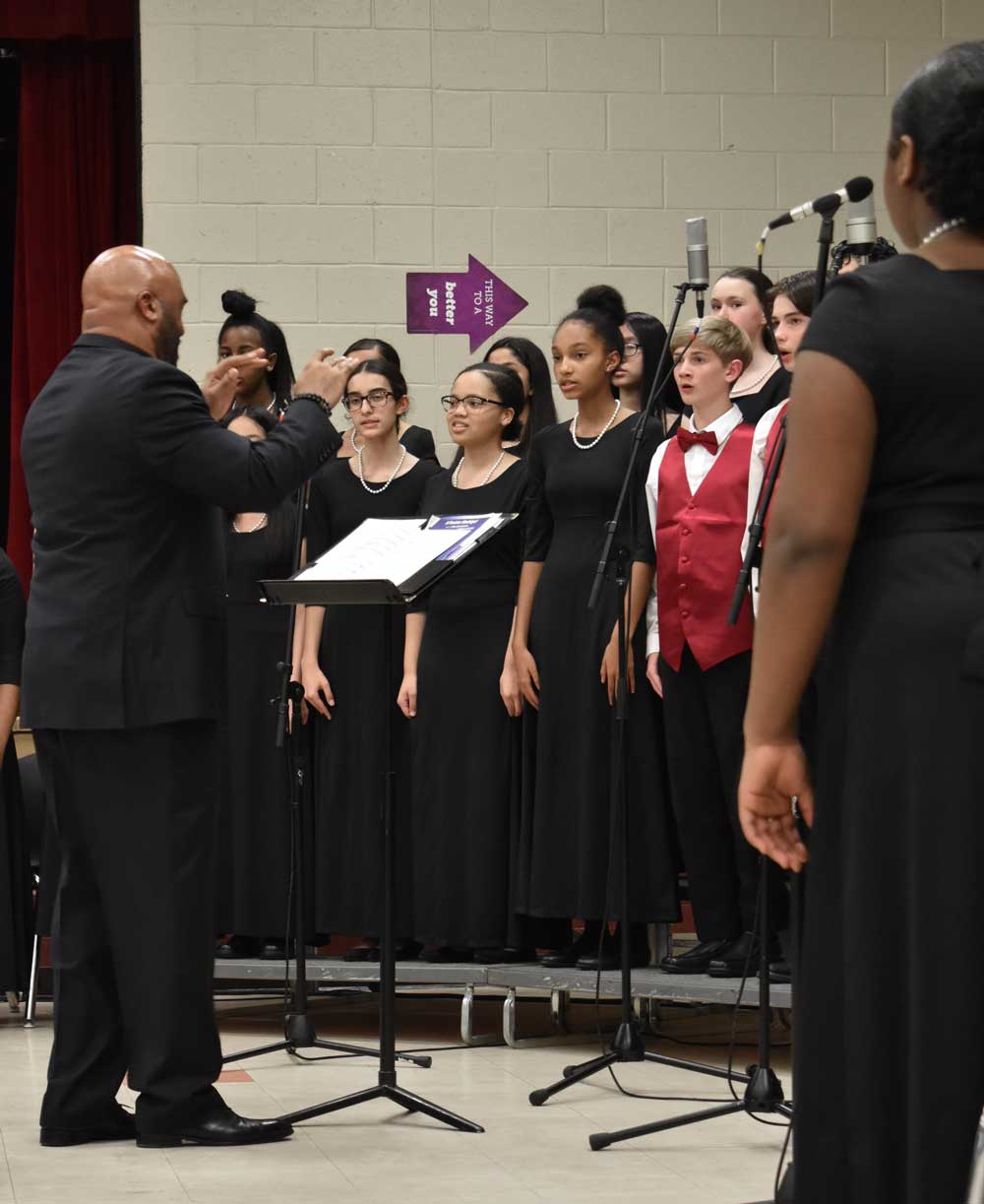Tucker’s Cluster Schools Training the Next Generation of Musicians Across America, music in schools has something of a fraught history. The No Child Left Behind Act of 2002 emphasized core subjects such as math, science and reading - subjects that could be quantifiably measured through standardized testing. It would stand to reason that the budget cuts that followed the Great Recession tended to affect arts programs first. After all, critics would say, it is hard to justify the additional costs of art supplies or instruments in a school’s budget when technology is improving by leaps and bounds, creating a strong need for STEM professionals. According to a survey by the Georgia Budget and Policy Institute, as many as 42 percent of Georgia school districts reduced or eliminated art and music programs in 2013.
Across America, music in schools has something of a fraught history. The No Child Left Behind Act of 2002 emphasized core subjects such as math, science and reading - subjects that could be quantifiably measured through standardized testing. It would stand to reason that the budget cuts that followed the Great Recession tended to affect arts programs first. After all, critics would say, it is hard to justify the additional costs of art supplies or instruments in a school’s budget when technology is improving by leaps and bounds, creating a strong need for STEM professionals. According to a survey by the Georgia Budget and Policy Institute, as many as 42 percent of Georgia school districts reduced or eliminated art and music programs in 2013.
However, studies have shown numerous benefits to children studying music that bubble over into other subjects. Music promotes memorization and language skills as well as pattern recognition. Learning an instrument improves hand-eye coordination. Regular practice and group learning develop work ethic and collaboration skills. These benefits are revealed clearly in standardized test scores. In a 2019 Journal of Educational Psychology study of over 100,000 Canadian students, those with a history of music experience scored higher than others in English, math, and science exams even when controlled for other factors such as socioeconomic background. Instrumentalists saw the strongest advantage; members of high school band and orchestra were almost a year ahead of their classmates in their test scores on core subjects.
Americans are catching on to the importance of music and the other arts. In recent years, many educational movements have adopted a motto of “STEAM” rather than STEM alone. While STEM promotes science, technology, engineering and mathematics, STEAM adds the arts to the lineup.
What does all of this have to do with Tucker?
Tucker’s cluster schools take the arts, particularly music, seriously. Starting with our elementary schools, music is a consistent part of the curriculum. Fourth graders learn the recorder in their music classes and, beginning in fifth grade, students have the option to take band in addition to their regular music classes. Smoke Rise and Midvale Elementary also offer chorus as an opportunity to learn, and Midvale incorporates the ukulele as part of its music classes as well.
 Kaela Bitting, Midvale’s music teacher, has seen the benefits of music education firsthand.
Kaela Bitting, Midvale’s music teacher, has seen the benefits of music education firsthand.
“For one, it’s something all our students get to take,” Ms. Bitting says, explaining how music helps her students relate to each other. She adds, “We moved music classes to the morning [and] we actually saw an increase in fixing student tardiness because students were excited for class.”
Bitting admits that Midvale is an International Baccalaureate and STEM school, not a STEAM school. But, she says, “we’re designed [as if we were] a STEAM school. We’re cross-disciplinary. An engineer needs to have that art experience to design architecture. The STEAM concepts are important. We see the advances in technology, the advances in medicine…putting the A shows that developing the humanitarian side is so crucial. It’s a matter of balance.”
Once they reach Tucker Middle School, students may take band, chorus or orchestra. Otherwise, they will study music as part of their regular class rotation.
Tucker High School runs the gamut of musical options for students. Charles Conner teaches Band and Music Technology, Richard Davis teaches Orchestra and Music Appreciation, and Sun Min teaches Chorus and Piano.
“Music, as well as all other arts, requires a high level of critical thinking…which transfers over to all other subjects and areas,” Conner explains. “The performance of music requires a high level of discipline and focus which again enhances other areas of learning growth and development.”
In addition, he acknowledges that not only do students involved in music education show high graduation rates, but they also can earn scholarship money as musicians if they go to college.
While music education has been shown to have so many positive impacts both in other school subjects and beyond, the variety of opportunities offered to Tucker Cluster students makes it easy to take advantage. No doubt Tucker’s well-rounded graduates will be ready to take on the world. Full STEAM ahead, Tucker!

